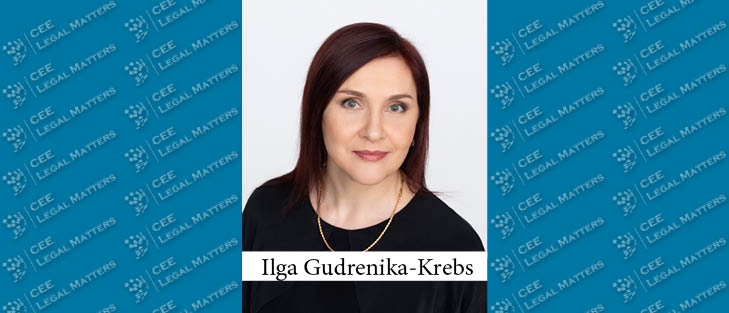From an uptick in mergers and acquisitions to complex public procurement projects, regulatory changes, and the impact of geopolitical factors on the legal market, Ellex Partner Ilga Gudrenika-Krebs, looks forward to a busier second half of the year than the first.
"The first half of the year was somewhat slower from our perspective, but since June or July, we've seen a slight uptick in activity, especially in mergers and acquisitions," Gudrenika-Krebs begins. "I work primarily in real estate, which is still quite slow; meanwhile, the activity concerning regulatory work, public procurement, and various disputes, in construction in particular, is quite considerable. Legal work seems to pick up in the latter half of the year, with more transactions taking place," Gudrenika-Krebs shares.
Focusing on specific sectors, Gudrenika-Krebs notes that there has been a noticeably "growing focus on public procurement and large-scale tenders, particularly related to infrastructure projects like Rail Baltica and major public works like the largest university hospital in Latvia. These projects create substantial work for lawyers, especially when disputes arise, such as those seen with the construction of the university hospital in Riga." According to her, these ongoing projects along with prospective IPOs planned for state-owned companies, like AirBaltic, are critical for the city and Latvia as a whole.
In addition, Gudrenika-Krebs reports that "geopolitical factors have a significant impact on us, especially given our border with Russia and Belarus. This has influenced the development of the military industry and its necessity for legal support, including the growing drone production industry. For instance, we’ve been involved on the legal side of the landlord, where a large drone production company contemplated leasing premises. Also dealing with sanctions compliance remains a critical aspect of our work." According to her, Latvia continues to be used as a transit corridor for goods, which brings up "complex legal questions, like dual-use items, especially around customs and sanctions."
As for noticeable legislative changes, Gudrenika-Krebs reports that a significant one was "the new regulation on arbitration courts in Latvia, which came into force this July. The amendments have raised the standards for arbitrators, particularly regarding their reputation and education, and have expanded the court's role in arbitration proceedings." According to her, this includes taking statements from witnesses and enforcing security measures on assets during proceedings, which "had been debated for over a decade. These changes aim at making arbitration more professional, transparent, and effective."
Additionally, Gudrenika-Krebs reports that digital tools are being widely used across the board in Latvia. "From e-signatures to electronic court case files and e-invoices, we’re quite advanced compared to many other countries. E-signatures are integral to our daily work with government authorities, courts, and in transactions, thus making the whole legal process very efficient." Moreover, she reports that Latvia’s "company register is fully digitalized; therefore, document submissions are straightforward and time-efficient, and a company can be established within two to three business days."
Lastly, Gudrenika-Krebs reports about another area of notable legal development – waste management: "A natural resource tax was introduced this summer to be levied on textiles, which is a pioneering initiative in Europe. It raises complex questions about applicability on import and export and how to measure what is taxable, particularly concerning mixed goods which consist, for example of textiles, plastics, and metals."
















